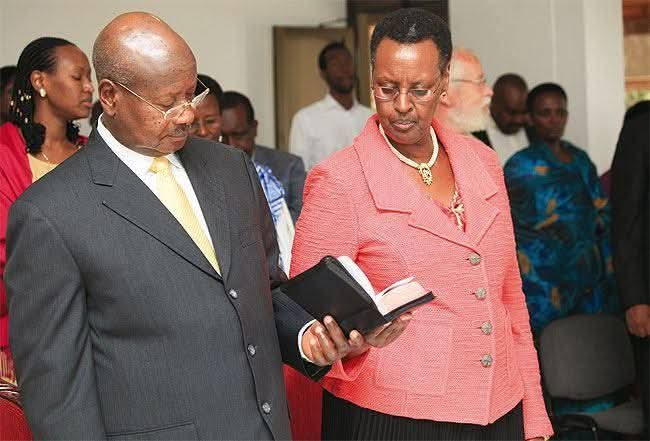
Dear Mr. Museveni, Muhoozi, Janet, and All Those Who Support the NRM Regime,
You cannot be nasty and needy. You don’t get to mistreat the people of Uganda and then expect there to be no consequences. Your actions, your treatment of the people, and the suffering you impose on us cannot go unnoticed any longer. It is natural for people to protect themselves from those who try to harm them, and we, the citizens of Uganda, are no different.
Decency is the price you pay for access—access to the support, the consideration, and the respect of the people you claim to lead. If you choose to misuse your words, mistreat your fellow citizens, and act recklessly with your power, then you must be prepared to face the consequences. We, the Ugandan people, will no longer sit silently while our lives are crushed under the weight of your dictatorship.
Most of us are not signing up to help or stand with a regime that continues to hurt us. How dare you be reckless in your conduct and then expect us to stand with you? Make that make sense. You cannot bruise the dignity of our nation and its people, and then turn around and ask for our support, compassion, or cooperation. It does not work that way.
That is not how this works. That is not how life works. If you are burning bridges with the people, don’t be surprised when no one shows up to help rebuild them. Favor flows where honor goes, and the honor you have forsaken has caused an irreparable divide between you and the people of Uganda.
You must choose: either treat the people with decency, be measured with your words, careful with your character, and considerate in your actions, or continue to walk alone in your quest to hold on to power at all costs.
To the people of Uganda, we must stand firm. Our voices must be heard. We will not allow this government to continue its reign of terror while the rest of the world turns a blind eye to our pain. To those in the West funding and supporting this dictatorship while turning a deaf ear to our suffering, understand this: Your silence is complicit. The suffering of Ugandans is on your hands as well.
We cry for justice, we cry for freedom, and we cry for the dignity that has been stripped from us. This is no longer about politics; it is about humanity.
Sincerely,
A Ugandan Citizen who longs for peace, justice, and freedom.
https://hoimapost.co.ug/open-letter-to-mr-yoweri-museveni-his-son-muhoozi-janet-museveni-and-all-nrm-sympathizers/
https://hoimapost.co.ug/open-letter-to-mr-yoweri-museveni-his-son-muhoozi-janet-museveni-and-all-nrm-sympathizers/ , hoimapost.co.ug
https://hoimapost.co.ug/open-letter-to-mr-yoweri-museveni-his-son-muhoozi-janet-museveni-and-all-nrm-sympathizers/ , https://hoimapost.co.ug/open-letter-to-mr-yoweri-museveni-his-son-muhoozi-janet-museveni-and-all-nrm-sympathizers/ ,
hoimapost.co.ug , https%3A%2F%2Fhoimapost.co.ug%2Fopen-letter-to-mr-yoweri-museveni-his-son-muhoozi-janet-museveni-and-all-nrm-sympathizers%2F